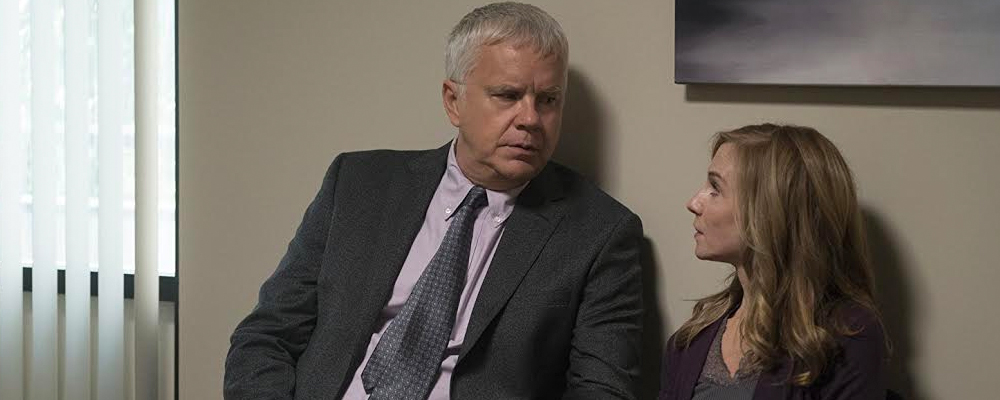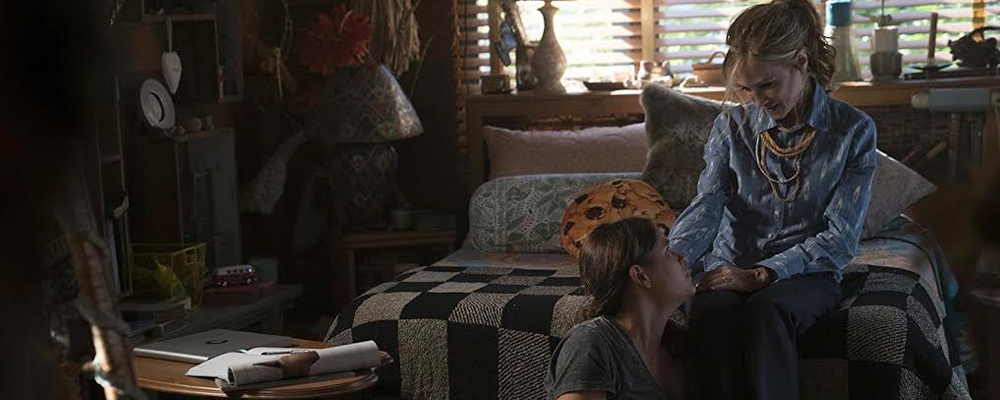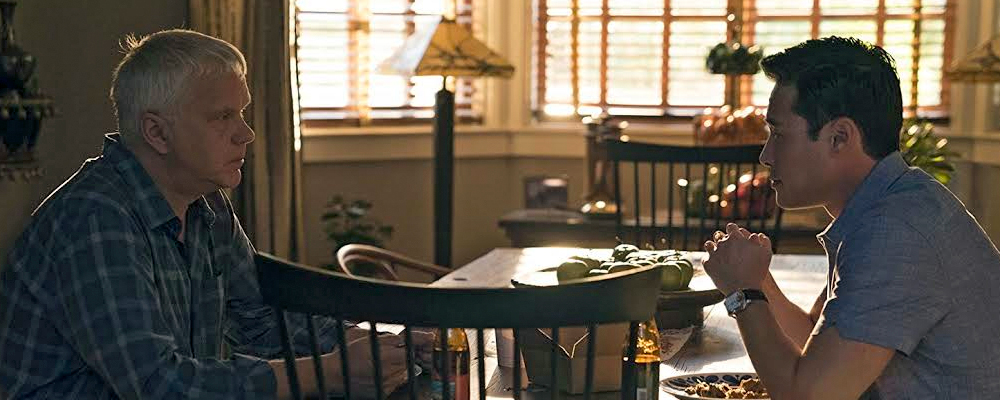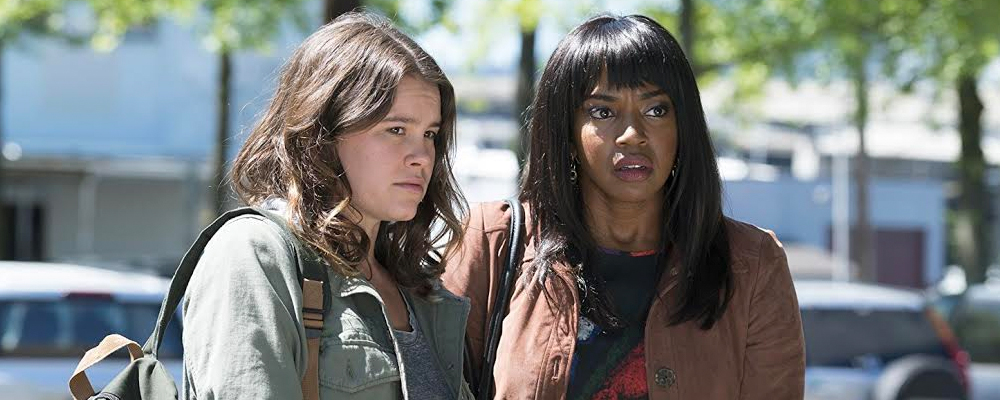Middle Class Angst Is the Focus of Alan Ball’s ‘Here and Now’
Alci Rengifo
The American middle class is high on drugs and down with identity politics in HBO’s “Here and Now.” The new series by Alan Ball features all of his anthropological obsessions with the ways of the modern suburban inhabitant. There is much that is cutting and provocative in this show, and future viewers might find valuable insights into how we did indeed lived here and now. Where Ball falters is in letting the message overtake the narrative. Each episode is so obsessed with preaching a specific idea that an engaging plot or story is never developed. For many who tune in, it will feel like when someone tells you things you already know.
The focus is on the Bayer-Boatwright family, which encapsulates every stereotype of the liberal suburban American. Tim Robbins is Professor Greg Boatwright, who is renowned for one philosophy book he published decades ago. Now he’s mired in depression and uncertainty, feeling despair at the state of things within a society obsessed with positivity. His wife Audrey Bayer (Holly Hunter), is a micromanager who is hired to resolve conflicts while her own family has brewing tensions of its own. Their adult kids are a gallery of adoptions from various backgrounds. Duc (Raymond Lee) is Vietnamese and a therapist obsessed with perfection, Ashley (Jerrika Hinton), who is black, runs an online retail outlet and despite being married, flirts with danger when it comes to models and drugs, Ramon (Daniel Zovatto) is Latino, gay and dreams of working in the gaming world. The youngest, 17-year-old Kristen (Sosie Bacon) is Greg and Audrey’s only biological child and a natural rebel. Their contradictions and repressions come to a boiling point when Ramon starts having strange hallucinations centered on the number eleven.
“Here and Now” is designed as a sort of gallery of various lives all representing this era we’re living in where identity politics, positivity and funny double standards define middle class culture. Ball has been here before, most notably with his screenplay for the 1999 Oscar-winner “American Beauty.” Like that movie and Ball’s first HBO series, “Six Feet Under,” a running theme here is that American suburbia is all surface while the reality is despairing and close to snapping. The siblings all resent their suspicion that they were adopted as props to feed Audrey’s sense of liberal righteousness. Duc feigns celibacy and an obsession with working out to mask his own scars and insecurities. Ashley seems to have a good family, but feels boredom for unexplainable reasons. Only Kristen and Greg seem sane in their rebelliousness, acting out against the fake conformity of their surroundings.
But Ball never shapes any of these characters into a strong storyline we actually want to follow. It’s all snapshots of moments with dialogue that lacks any subtlety. Ball has made so many observations about modern America that he uses every bit of dialogue to pound the message home. Sometimes it can work in a darkly humorous way. Two scenes which tap into the zeitgeist include a moment where Greg loses it during a panel with a positive-minded philosopher, brushing him aside and saying, “Anxiety is a completely appropriate response to today’s reality, and anger.” In another scene minority students attempt to form a support group at Kristen’s high school while excluding the white students, provoking an argument about what being inclusive means. But other moments flounder because Ball is trying too hard. Ramon’s new relationship, Henry (Andy Bean), asks him for an apartment key and the dialogue turns into a whole moment about what giving the key means in terms of relationship meanings. A storyline involving a Persian psychologist played by Peter Macdissi and his gender-fluid kid Navid (Marwan Salama) never feels authentic because every line is a TedTalk speech.
“Here and Now” is a missed opportunity at truly exploring middle class America as it exists today. Instead it simply shows us a row of moments with the same sort of scenarios we always see when this subject is tackled. The teens get into risky sex, the adults never practice what they preach and smoke some pot, and it is all now within a social culture where liberalism is almost treated like a fad. What is missing here is a strong story to carry us through. In “American Beauty” the technique worked for a feature film, but here Ball and his team are aiming for a series-length narrative. By the fourth episode we get the message. Even the whole angle of Ramon’s visions feels formless, like something slapped on to try and give the series the semblance of a plot.
Because the cast is formidable the performances hit the right notes. Tim Robbins as Greg plays the perfect, disillusioned hippie. He’s the guy who knows the cause failed. Holly Hunter is never less than authentic as a “liberal” who uses the mask of being a progressive to hide her own faults. Among the siblings Raymond Lee stands out as the perfectionist Duc. He does indeed evoke those treadmill-running hipsters convinced their lifestyle is a badge of fulfillment.
This is one of those shows that had the makings of an enticing premise. But the final product is off because it never lets a story take shape. It’s all just moments full of dreariness, hypocrisy and loneliness. We need good storytelling here because we don’t need to be introduced to these people. We see them every day.
“Here and Now” Season 1 premieres Feb. 11 at 9 p.m. ET and airs Sundays on HBO.




